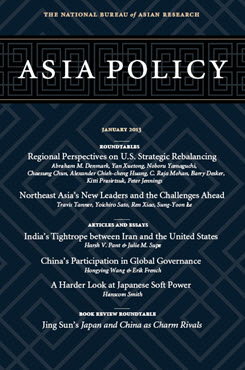Toward a Universal Japan
Taking a Harder Look at Japanese Soft Power
This essay argues that Japan can make better strategic use of its economic policy, humanitarian aid, and domestic civil society to play a more effective role within the U.S. alliance and globally.
EXECUTIVE SUMMARY
MAIN ARGUMENT
Faced with a stagnant economy and an emerging China, Japan has emphasized pop culture as “soft power” to augment its influence. The country’s stable democracy and vibrant civil society, however, are the core of its strength. Japan can expand the constituency for a new “Japan model” through enhanced trade, academic exchanges, and other indicators of international openness. At the same time, the U.S. can augment Japan’s soft-power strategy by developing the nonsecurity pillar of the bilateral alliance through joint cooperation on humanitarian and disaster relief, health, and environmental protection.
POLICY IMPLICATIONS
- Rather than the “Cool Japan” of pop culture, fashion, and consumer products, the society that produces such attractive items is the heart of Japan’s soft power.
- From a low base, Japan has been able to leverage its soft-power assets by increasing economic, educational, and cultural interactions with foreign countries. Japan’s ability to develop its soft power will enable the country to play a stronger role within the U.S.-Japan alliance and reduce its dependence on ties to the U.S. as a basis for projecting power.
- The U.S. can complement Japan’s efforts through more strategic use of the alliance as a vehicle for soft power.
- If the U.S. adopts a strategic approach to facilitating Japan’s soft power, then it can replace current ad hoc initiatives with targeted cooperation that reinforces both countries’ strengths and policy priorities.
- The current piecemeal approach to bilateral cooperation on global issues can be replaced by a focus on three proven areas of success: humanitarian and disaster relief, health, and environmental protection.
- Instead of announcing new initiatives and then attempting to develop programs, Japan and the U.S. could expand successful examples of small-scale cooperation in the field when merited.
- Bilateral cooperation programs could be expanded to include third-country partners, especially in East Asia.
About Asia Policy
Asia Policy is a peer-reviewed scholarly journal presenting policy-relevant academic research on the Asia-Pacific that draws clear and concise conclusions useful to today’s policymakers. Asia Policy is published quarterly in January, April, July, and October and accepts submissions on a rolling basis. Learn more


